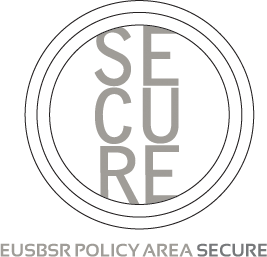Because of climate change, the risk of unpredictable weather events such as droughts, floods, forest fires and extreme temperatures increased. To make the Baltic Sea Region more resilient, CASCADE project (which received funding from the EU Civil Protection Mechanism) brings together civil protection specialists and climate change adaptation experts to identify and measure such risks as well as to give recommendations on how to respond to them in the most effective way. The results of this cooperation are useful both for the national governments so they can adjust national strategies, and for the cities and municipalities around the Baltic Sea, so they can train their officials accordingly. CASCADE partners held its kick-off in Hamburg on 6-7 February 2019. Welcomed by Torbjörn Lindström, Southwest Finland Emergency Services and Stephan Wenderoth, Deputy Head of Hamburg Fire and Rescue Service (which hosted of meeting), the kick-off started with presentations, setting the stage for the project – by Nina Jernberg (CBSS Secretariat), Evelin Piirsalu (SEI Tallinn), Kim Lintrup (Frederiksborg Fire & Rescue Service) and Lydia Gates (Deutscher Wetterdienst). Later, the partners discussed project management, finances, communication and cooperation within the consortium – to ensure smooth and effective implementation of the project.
Click here for CASCADE brochure
CASCADE (Community Safety Action for Supporting Climate Adaptation and Development) will seek to improve urban resilience in cities and towns, as well as the overall macro-regional resilience. The expected outcome of CASCADE is to adapt existing risk assessment methodology to the climate change context and tailor it to the local level. This methodology will be used in a training course for city officials, responsible for civil protection. If successful, the training can be replicated by all BSR countries.
CASCADE will also strive for initiating a region-wide policy dialogue on the UN Sendai Framework for Disaster Risk Reduction as an effective platform for cross-sectorial cooperation between different levels of governance and for greater policy coherence on climate risk assessments.

